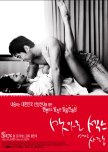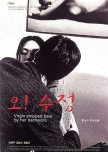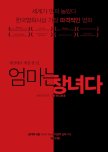 Kim Kang Woo Confirmed to Star in "Wonderful World"
Kim Kang Woo Confirmed to Star in "Wonderful World" - Français
- Español
- English
- magyar / magyar nyelv
- Titre original: 돈의 맛
- Aussi connu sous le nom de: Donui Mat
- Scénariste et Réalisateur: Im Sang Soo
- Genres: Crime, Drame
Où regarder The Taste of Money
Distribution et équipes
- Kim Hyo Jin Rôle principal
- Kim Kang Woo Rôle principal
- Baek Yoon ShikPresident YoonRôle principal
- Yoon Yeo JungBaek Geum OkRôle principal
- Ohn Joo WanYoon ChulRôle Secondaire
- Kwon Byung Gil[Geum Ok's Father]Rôle Secondaire
Critiques

unterwegsimkoreanischenD
21 personnes ont trouvé cette critique utile
The focus on the absolutist self-image of the Jaeboel changes towards their very human weaknesses
"The Taste of Money" from 2012 bombards the audience with aestheticized images, a strangely bizarre stirring mixture of cynical decadence, insatiable greed and human weaknesses that even the richest of the rich don't stop at. Let's start with the moral of the story: money doesn't buy happiness. On the contrary. The more there is, the unhappier their owners get. They may be wealthy bank-wise, but humanly they are bankrupt. Maybe they can buy anything, but in fact they are (and remain) alone. Their relationships tend to be abusive, mostly cold, and rather an empty, highly polished shell.The KMovie focuses on a Jaebeol clan with a CEO, his wife, daughter and son, as well as the CEO's assistant and a filipino housekeeper.
----------- SIDE NOTE: --- Jaebeol, the secretive modern royalty of South Korea ---
The rich and powerful of South Korea emerged as a distinct variety in the post-war years. As a motor of progress and prosperity, they still influence social life as a matter of course - hidden, unofficially, from the background. In their hands gigantic possessions are concentrated. These are consistently maintained within the founding families. The Jaebeol clans were created as part of the autocratic governance of the early decades of the Republic and were further strengthened during the military dictatorship. The founders set the course for the economic upswing. In the meantime however they behave like the country's new nobility. They shamelessly and ruthlessly buy and bribe people at will. The remaining 99 percent of society are practically 'learned helpless' at their mercy. You have nothing to oppose to this power, which simply interferes with the legislature, judiciary and executive if necessary.
---------------------------------------------------------------------------------------------------
The protagonist's family is one of the first percent of the social class, which behaves as a matter of course as royal families. Here pomp, decadence, coolness, distance, and even obscenity dominate. The highly polished, stylized aesthetic stands in deliberate contrast to a rather gloomy lighting mood. The opulent wealth almost builds an aesthetic wall that cannot be penetrated. The family members are trapped inside. Nothing can or event likes to really approach that, let alone penetrate it. It is (and remains) a strangely strange world.
The idiosyncratic cinematic narrative style contributes to this. It doesn't even try to collect all the threads at the end and close them neatly. It's as if the camera jumped in on the family story at one random point and got off at another. At the beginning, the focus is on the corrupt machinations and the almost absolutist self-image, but that changes on the track after the very human weaknesses of the individual clan members open up. Although they pretend to be untouchable, they are still vulnerable and actually want to be touched. From there it becomes a more or less satisfactory settlement with their own heart balance. 'Love' is a concept in this world that doesn't really want to fit in.
One of the key scenes: Youn Yuh-jung is shown a 64-year-old woman in an unusual candid sex scene. A disturbing effect is deliberately wanted. In a way, this encounter between young and old, between boss and employee, points out the dilemma of the story, so to speak. In this short, impressive scene, the venal world of dependencies and emotional states is turned upside down. The rich have everything and yet they don't - there is something they don't have: the feeling of being wanted, desired or even loved for their own sake.
"The Taste of Money" is a somber social study about the 1 percent that sits at the top of South Korea's social pyramid. Once again. There is an astonishing number of such startling studies in the world of film and series. But it seems even more astonishing to me that there are obviously still far from enough of them. Because nonetheless, this 1 percent still sits dazzlingly on its throne and it is still considered highly desirable within South Korean society to get as far up the pyramid as possible...
Cet avis était-il utile?
























































